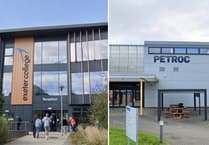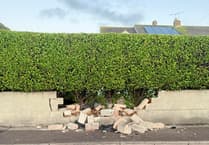A REPORT submitted to Mid Devon District Council’s environment policy development group (PDG) on Tuesday, November 8, reveals that Mid Devon achieved the highest increase in recycling rates amongst Devon Authorities during 2015/16.
Only a year since the introduction of the new waste and recycling scheme, the report demonstrates that residents are engaged with the new service.
It shows a clear reduction in waste sent to landfill, with recycling rates climbing to beyond 50 per cent and rising to 55 per cent for the first half of 2016/17.
A recycling rate of 85 per cent could be achieved with the continued help of residents placing more of their materials into the correct containers.
Latest figures show that 8,400 customers have already subscribed to the new garden waste scheme and the service target of 10,000 is now within sight.
Cllr Karl Busch, cabinet member for the environment, stated: “I am really happy that the residents of Mid Devon have embraced the changes and the scheme is proving successful much to the credit of participating customers and the hard work of operations and back-office staff alike.
“The new scheme has massive benefits for the environment through the recycling of more material and in reducing the amount of waste going to landfill.”
MDDC says further efficiencies are being planned by the Waste team as it strives to reduce the cost of the service by 20 per cent, one of which, highlighted in the report, consists of a Partnership Agreement with Devon County Council (DCC) to develop reductions in waste treatment and disposal costs.
By entering into the partnership, it says further cost savings can be made in the method used by DCC to dispose of the waste generated by Mid Devon.
A proposed transfer facility will allow food and garden waste to be treated separately, which will have a positive impact on treatment costs and the reuse of organic waste.
It says it is hoped that there will be no need to send waste to landfill in the long run.
Alan Quick





Comments
This article has no comments yet. Be the first to leave a comment.